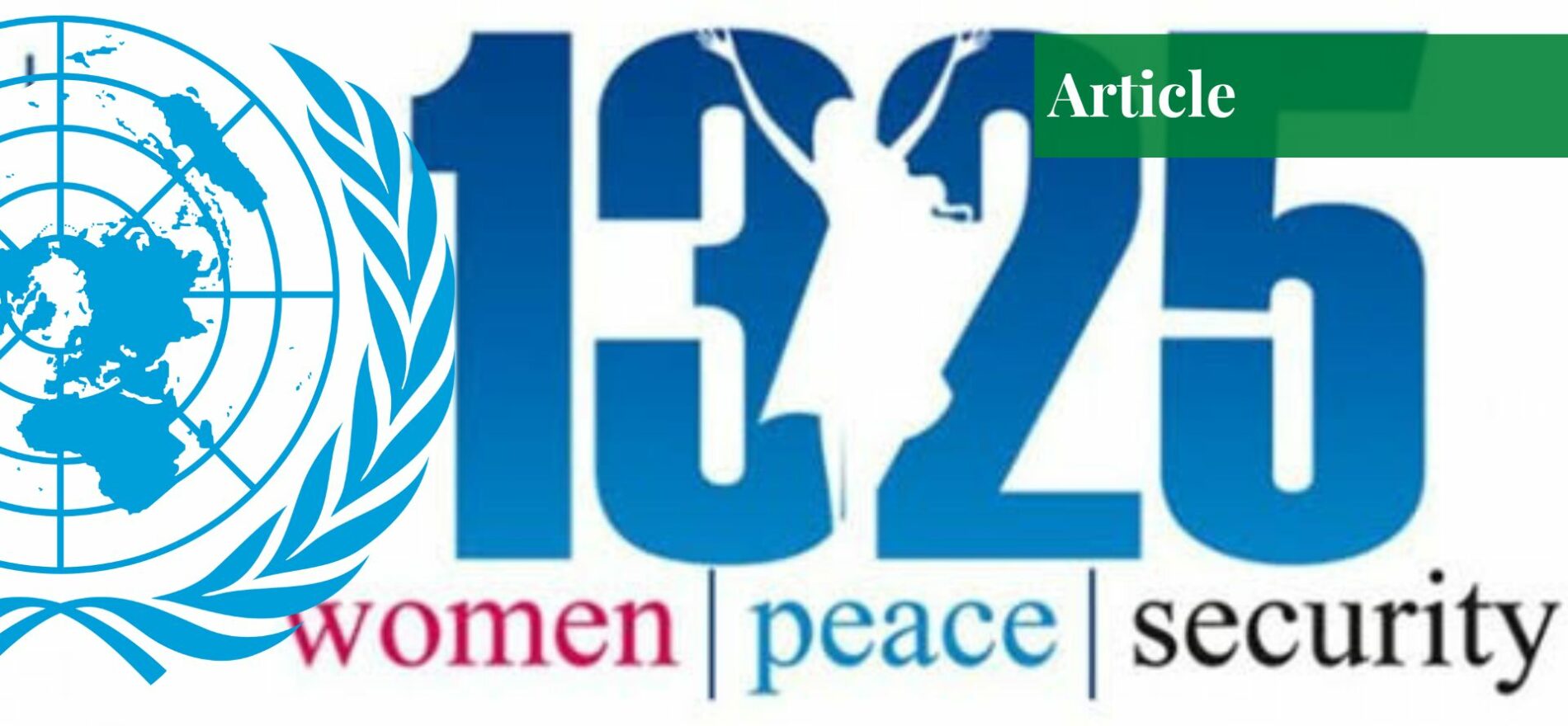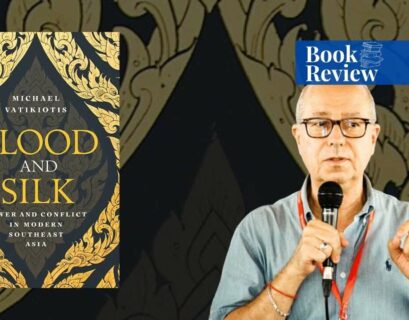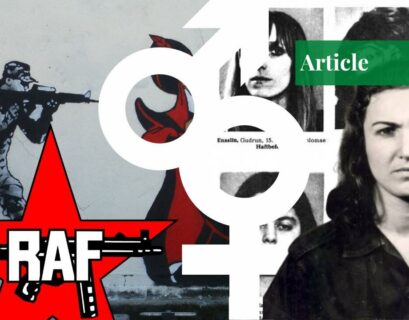Iman Faisal is currently pursuing her bachelor's in peace and conflict studies from National Defense University Islamabad. Her areas of interest are the Middle East, South Asia, Africa, sectarian conflicts, terrorism, and criminology.
UN Resolution 1325
UN Resolution 1325 is an important landmark in the history of women, peace and security. It was passed on 31st October, 2000. It sheds light on the important role of women in conflict prevention, resolution and efforts for peacebuilding. The resolution also highlights the importance of equal participation of women in promoting peace and maintaining security in different initiatives of the United Nations. It calls on all the parties to the conflict to take measures to protect women from gender-based violence. As per the concerned resolution, the involvement of women in preventing conflict, the peace process and post-conflict reconstruction makes the peace sustainable.
Pillars of the Resolution
The resolution provides a number of responsibilities for conflicting parties and urges the member states to devise their own plans for dealing with the particular problem. Each of the mandates is related to one of the following pillars.
Participation
This pillar emphasizes enhanced participation of women in all levels of decision-making, planning, conflict resolution, peacemaking, peacekeeping, and post-conflict peacebuilding efforts. It signifies the fact that the inclusion of women in the peace process may make the peace lasting. Mainstreaming women will provide a productive platform for them to contribute to society, become financially stable, and protect themselves from the consequences of conflict and gender-based violence.
Protection
Whenever there is a conflict, women often become the soft targets of violence. Either they are restricted within their homes for purdah, have to travel far to earn for their families, or protect them in the absence of their male counterparts. They’re more susceptible to harassment, rape, and domestic, physical and mental abuse. Hence, they become victims of violence, especially gender-based violence or any kind of sexual abuse. This makes women the most vulnerable community during times of conflict. The UN Resolution 1325 calls for conflicting states to take measures to protect women from such crimes.
Prevention
The resolution calls for preventing women from becoming targets of gender-based violence by improving the intervention strategies. It emphasizes the creation of mechanisms to punish the perpetrators of gender-based violence or violators of any international law, strengthening women’s rights under national law, and supporting local women’s peace initiatives and conflict resolution processes. This will expand the scope of post-conflict peace, preventing the relapse of conflict.
Relief
In times of crisis, women become easy targets. They become heads of families, breadwinners, and the sole guardians of the safety of their children. Even in refugee camps and settlements, if there are no male counterparts present, women have to provide food, clothes, and daily necessities. Hence, Resolution 1325 addresses the conflicting parties, and humanitarian relief organizations of any intervening party to improve the intervention measures by collecting data, analyzing the situation, and planning and executing humanitarian response with gendered lenses.
Women and Violent Extremism
Initially, the idea of violent extremism seemed to be male-dominated. But with the enhancement of research and expansion of this particular field, it is evident that women are also directly related to it. They not only participate actively but are the primary victims of it.
When male members of a family leave their homes and become involved in certain violent activities or become a victim of them, females run the family. Meanwhile, they have to face various difficulties like harassment, gender-based violence, and discriminatory behaviour. In some situations. They have no choice left to become involved in violent or illegal activities to earn money or to pursue a “noble/holy” cause. Considering the direct relation of women with violent extremist instances, they should have equal representation in combating it as well.
Incorporation of UNSCR 1325 to Combat Violent Extremism
At the beginning of the rise of violent extremism, women’s role was largely ignored, but with time it was realized that until gendered lenses are not employed in conflict analysis and countering mechanisms, the issue cannot be handled.
Preventing Violence Against Women
UN Resolution 1325 invites the participants of the conflict to take measures to prevent gender-based violence. This is because it can attract vulnerable women to radical ideologies. Women are reluctant to report any sexual abuse because of social norms or trust deficits in law enforcement agencies, especially in times of conflict. They become alone and resort to violence. In addition to this, it has been reported that men engaged in violent acts often subject women to abuse. They force them to facilitate terror acts. This further deteriorates the situation.
Countries like Bangladesh have incorporated provisions in its national action plan (2019-22) for the prevention of crimes against women. To reform this plan, civil society organizations are emphasizing the inclusion of measures for the protection of Rohingyan women in refugee camps. It is feared that gender-based violence against the Rohingyan refugee women may prove to be an emerging security threat, as they may be compelled to join violent extremist groups for various reasons. Thus, perpetrating violent radical actions. Protection and satisfaction can prevent such threats to the peace and security of Bangladesh.
Women in Decision Making
The number of problems concerning women can be eliminated if they have equal representation in decision-making. The circumstances and difficulties of a woman can only be better communicated by a woman. Them being the direct bearers of several consequences of violent extremism can reflect the actual picture more effectively.
As per the UN Resolution 1325, women should be included at different levels of decision-making, i.e. international, national, and community as well. They should be included in the planning and implementation of counter-violent extremism programs. Separate budgets should be allotted for gender-related tasks during the CVE programs. The budgeting should involve women focal persons for gender-sensitive data collection processes. Each ministry/department regarding CVE programs should have a gender focal point so that the impacts of the initiatives on women can be recorded and communicated properly.
Women as Peacemakers
UN Resolution 1325 calls for member states to increase the representation of women during conflict resolution. By employing a gendered perspective during negotiations or mediation with extremist elements, inclusive and sustainable peace can be established. Wives and daughters of the detained extremists can be engaged in psychological counselling sessions. This may have a personalized effect on their rehabilitation and recovery, accelerating it. When the detainees hear the personal accounts of suffering from their own family members, they might disengage from the radical ideas earlier.
Women as Peacekeepers
UN Resolution 1325 spotlights the need for women in peacekeeping missions. It says that when forces are sent to conflict zones, women should receive equal representation. This enhances the trust of conflict-affected women on the peacekeeping missions, making them comfortable to approach for any kind of help during or after the conflict.
If gendered lenses are used while conducting peacekeeping missions, women’s perspectives of the conflict will acquire more attention. Victims of gender-based violence and sexual assault will be able to communicate their problems to female peacekeepers. Female officers will better connect with them, and provide them counselling, legal or medical assistance, or any other aid.
Bangladesh, being one of the exemplary countries in the field of women, peace, and security, produced a national action plan that will make disaster management and recovery systems gender-responsive, improving the mechanisms of the provision of women’s rights and security. Bangladesh has excessively focused on enhancing the representation of women in law enforcement agencies, the army, and international peacekeeping missions under the national action plan (2019-2022). This illustrates its commitment to improving gender scenarios in humanitarian response.
The same measures can be taken by other states as well to provide women security and protection. Thus, inclusive peace may cancel out the emerging security threats and ensure the stability of security.
Conclusion
In this globalized era, where extremist views spread like wildfire, mobilizing people for vandalism, it is important to establish comprehensive and inclusive peace. UN Resolution 1325 is a milestone in the history of women, peace, and security which provides many operational mandates to mainstream gender in conflict prevention, mitigation, resolution, and peacebuilding. If these mandates are incorporated in countering violent extremism, states can achieve significant results in bringing lasting peace. Hence, states that have been neglecting gender perspective should look into it as soon as possible.
If you want to submit your articles, research papers, and book reviews, please check the Submissions page.The views and opinions expressed in this article/paper are the author’s own and do not necessarily reflect the editorial position of Paradigm Shift.



















